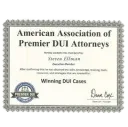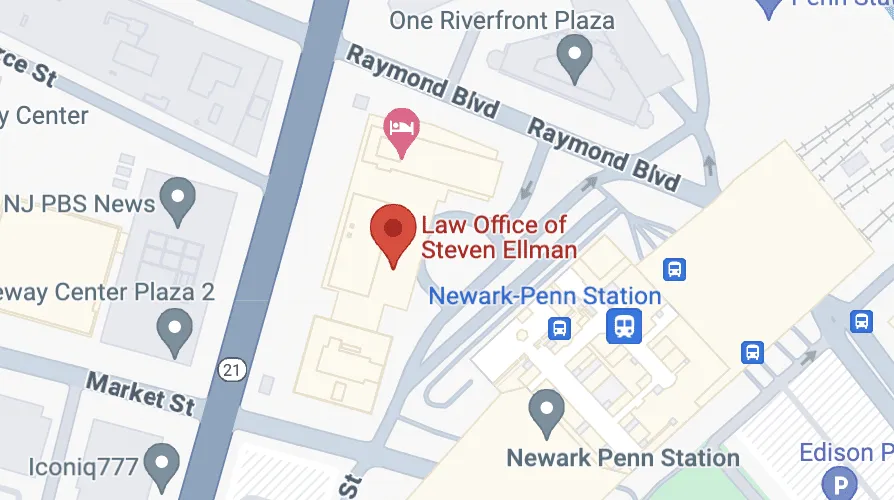What Are Possible Penalties for a First Offense DUI in New Jersey?
Get informed about first offense DUI consequences and potential penalties you might face. Protect your future with the right legal protection. Read more here.
According to Bankrate, a first offense DUI may result in fines and legal fees totaling over $10,000.
However, the exact amount depends on your state and specific circumstances. If you’re facing a DUI charge in New Jersey, knowing what to expect is crucial. Understanding the penalties can help you prepare and make informed decisions during this challenging time.
A first DUI offense can have significant consequences, but knowing the details is the first step toward taking control of the situation. Read on to learn about the possible penalties for a first DUI in New Jersey.
Fines and Financial Expenses
A first DUI offense in New Jersey can lead to fines ranging from $250 to $500. Apart from these fines, you may face other financial expenses, such as:
- Attorney Costs
- Court Charges
- License Restoration Fee
- Probation Costs
- Towing and Impound Expenses
It’s understandable to look for ways to reduce these costs. However, skipping a DUI defense attorney may cost you more in the long run. While you may think you’re saving money, not hiring a skilled attorney can lead to higher fines or even jail time.
A DUI defense attorney can help reduce penalties and avoid expensive consequences. Their expertise can save you from making costly mistakes during your case.
Investing in a lawyer may save you a lot of money and stress. The upfront cost is worth considering for its potential long-term impact on your finances.
License Suspension
If your BAC is between 0.08% and 0.10%, your license could be suspended for 3 months. The suspension may last anywhere from 7 months to a year for higher levels. Refusing a breath test also leads to a suspension, the length of which depends on your BAC and other circumstances.
This suspension can create significant challenges for those who rely on driving to get to work. Commuting can be difficult without a license, especially if public transportation isn’t an option. This could result in:
- Tardiness
- Missed workdays
- Job loss
However, you may qualify for a restricted license, which allows limited driving for essential activities like commuting to work. Be sure to check and comply with the specific rules to avoid further penalties.
Mandatory Ignition Interlock Device Installation
The court may require you to install a mandatory ignition interlock device if you’re found guilty of a DUI. This device prevents your car from starting if it detects alcohol on your breath.
It’s a significant penalty that could affect your daily life. You might feel embarrassed when friends or coworkers realize the device is in your car. They may ask questions or judge you, which can be uncomfortable.
According to Intoxalock, ignition interlock device installation typically costs $70 to $150, with monthly leasing fees averaging $60 to $90. These costs can vary depending on:
- Your State
- The length of time you need the device
- The specific provider you choose
- Installation location
- The type of vehicle you drive
- Whether there are any additional maintenance requirements
The money you pay goes directly to a state-certified installer, covering installation and regular maintenance. This cost can be hard to manage, especially when you’re already facing fines and other penalties for your DUI offense. The added financial burden can be overwhelming, making it even more important to consider all your options carefully.
Jail Time
Jail time is rare for a first offense DUI in New Jersey, but it is possible. According to the NJ Motor Vehicle Commission, the law allows up to 30 days in jail for first-time offenders. This applies especially to those with a BAC over 0.15%.
The likelihood of jail time increases if there are aggravating factors like:
- Reckless driving
- A child passenger in the car
- Causing an accident
- Driving with a suspended license
- Driving under the influence of drugs
Most first-time offenders face fines, community service, or probation instead of incarceration. Judges in New Jersey tend to be lenient, but aggravating factors can change this. You could also be sentenced to probation, which comes with its own set of rules and restrictions.
Going to jail, even for a short time, can have serious consequences on your life. It can affect your job, relationships, and overall reputation. Understanding your case and seeking legal help is essential to avoiding jail time and reducing penalties.
Alcohol Education Programs
If convicted of a first offense DUI in New Jersey, you may be required to attend an alcohol education program. The program is run by the Intoxicated Driver Resource Center (IDRC).
The goal is to teach offenders about the dangers of impaired driving. For a first offense, you will typically need to complete 12 to 48 hours of classes. These classes include educational materials and counseling to help you understand the risks of driving under the influence.
You will also have to pay an enrollment fee. Failing to attend or complete the program can lead to further penalties. These can include an extended license suspension or additional fines.
Completing the program is important for fulfilling the court’s requirements and avoiding more severe consequences. It can help you better understand the dangers of DUI, which may prevent future offenses.
Community Service
New Jersey may require first-time DUI offenders to complete community service as part of their sentence. This is a way for offenders to make up for their actions by giving back to society.
The number of hours you must complete depends on your case. Community service might seem less severe than other penalties, but it’s still an important obligation.
You’ll need to complete the service in a set time frame, usually by a specific deadline. Often, you can perform the hours during weekends or your off days, making it easier to fit into your schedule. In some cases, the court may allow you to choose where to complete your service, such as a local charity or nonprofit organization.
Finishing your community service requirement is crucial to avoid legal issues like violating probation terms or getting additional penalties. Staying on top of your community service and confirming the details with your attorney is essential to ensure that everything is done correctly.
Higher Insurance Premiums
After a DUI conviction, your car insurance premiums will likely rise. Insurance companies view DUI offenders as high-risk drivers, leading them to charge higher rates to cover that risk.
This increase can be substantial, sometimes doubling or even tripling your usual premium. In some cases, your insurer might refuse to cover you after a DUI conviction. If that happens, you will need to find a high-risk policy, which is typically more expensive.
This added cost can become a significant financial burden. To minimize the impact, shopping around and comparing rates from different insurance providers is essential.
Your premiums may gradually decrease after maintaining a clean driving record for several years. However, the financial effects of a DUI can linger for some time.
Employment Consequences
If your job involves driving or operating heavy machinery, a DUI conviction may result in the loss of your position. Even if you don’t lose your job, the conviction may be noted on background checks for future job applications. Potential employers may view a DUI on your record as a liability, making it more difficult to find work.
A DUI charge can have negative consequences even if your job does not involve driving or operating heavy machinery. This can lead to:
- Job loss
- Job suspension
- Reputation damage
- Promotion delay
- Stigma
Avoiding DUI convictions is important to protect your career. It can help you avoid complications when looking for work or advancing in your current job.
Contribution to Safe Neighborhood Services Fund
A first offense DUI conviction in New Jersey requires offenders to contribute to the Safe Neighborhood Services Fund. This fund helps support programs to prevent impaired driving and improve road safety. The contribution is part of your sentencing and goes toward initiatives that reduce DUIs.
Though small compared to other penalties, it still adds to the financial burden of a DUI. Your contribution shows your willingness to take responsibility and support efforts to prevent future DUIs. It’s also a chance to demonstrate your commitment to making amends.
Understanding this fee and its purpose is important when preparing for the financial impact of your case. As a first-time offender, it’s essential to account for all financial penalties and contributions.
This can help avoid unexpected costs during the legal process. Planning for these expenses can reduce stress and prepare you for the challenges ahead.
Minimize First Offense DUI Penalties by Hiring a Competent Attorney
A first offense DUI in New Jersey comes with several consequences, including fines, license suspension, and community service. These can impact your life financially, professionally, and personally. It’s crucial to understand the full scope of the DUI penalties and take steps to minimize the impact.
If you’re facing a DUI charge in New Jersey, consider seeking the legal help of The Law Office of Steven Ellman. With 39 years of experience, Steven Ellman has defended over 1,000 DUI cases. He has an 80%-plus success rate.
His expertise, commitment, and personal service make him the right choice for your case. Get in touch today for a free consultation.














